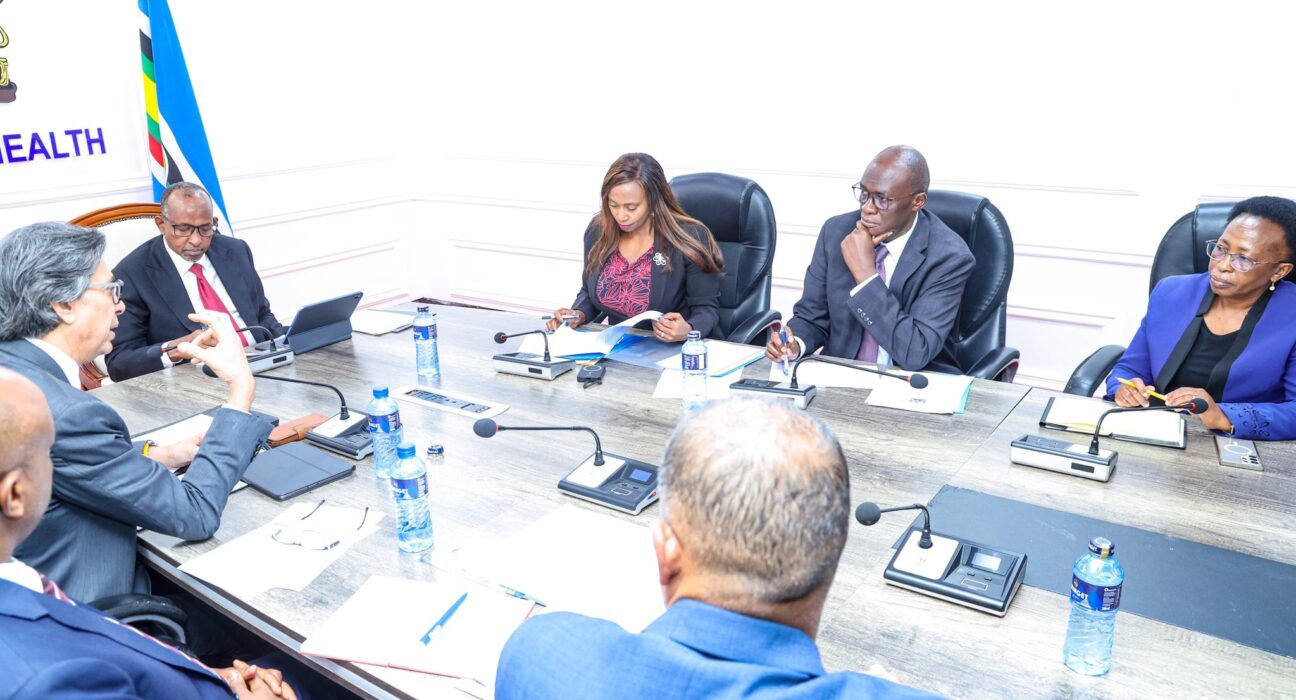Kenya is ramping up efforts to strengthen local pharmaceutical and health product manufacturing through robust policies, infrastructure investment, and strategic partnerships aimed at enhancing self-reliance, reducing costs, and advancing Universal Health Coverage (UHC).
Cabinet Secretary for Health Hon. Aden Duale hosted the Federation of Kenya Pharmaceutical Manufacturers (FKPM), led by Dr. Vimal Patel, Chairperson of FKPM and Managing Director of Cosmos Limited, to deepen discussions on expanding local drug production — a key driver of national health sustainability under the Taifa Care Model.
The meeting builds on a Presidential directive issued in October 2023, which committed Kenya to locally manufacture at least 50% of the medicines listed on the Kenya Essential Medicines List (KEML) by 2026.
This strategic goal seeks to:
- Strengthen the healthcare system by ensuring consistent access to essential medicines.
- Boost local industry through increased pharmaceutical manufacturing capacity.
- Create jobs within Kenya’s growing health and biotech sectors.
- Reduce reliance on imports and guarantee national independence in supplying critical health commodities.
Speaking during the engagement, CS Duale underscored that local manufacturing is a cornerstone of the country’s long-term healthcare transformation agenda.
“By supporting our local manufacturers, we are not only securing access to affordable medicines but also creating jobs and empowering Kenyan industries to lead in healthcare innovation,” said Hon. Duale.
The talks were anchored on the Kenya Local Manufacturing Strategy 2025–2030, a roadmap designed to:
- Scale up pharmaceutical production for both domestic and regional markets.
- Ensure full self-reliance in the supply of Health Products and Technologies (HPTs).
- Foster innovation and capacity-building across the entire healthcare value chain.
This strategy supports the Bottom-Up Economic Transformation Agenda (BETA) by driving industrial growth, creating employment opportunities, and enhancing national health security.
To safeguard patients and enhance drug safety, the Ministry of Health is rolling out a digital track-and-trace system that leverages serialization and blockchain technology.
This innovation will:
- Combat counterfeit medicines by ensuring authenticity from production to the point of care.
- Enhance supply chain transparency, minimizing leakages and stock-outs.
- Boost consumer confidence in locally produced health products.
Kenya’s push to localize pharmaceutical manufacturing hinges on collaboration between government, industry, and international partners. Through the partnership with FKPM, the Ministry seeks to align private-sector capacity with national health priorities, ensuring affordable, high-quality medicines reach every Kenyan.
During the engagement, CS Duale was joined by Principal Secretary Mary Muthoni (Public Health and Professional Standards), Director-General for Health Dr. Patrick Amoth, and senior Ministry of Health officials, demonstrating government-wide commitment to advancing the sector.
By accelerating local pharmaceutical production, Kenya is making strategic investments to:
- Lower healthcare costs for millions of citizens.
- Strengthen supply chain resilience during global health emergencies.
- Position itself as a regional pharmaceutical hub within East Africa.
With deliberate policies, targeted investments, and strong partnerships, the country is laying a foundation for a self-reliant, innovation-driven healthcare system capable of delivering on the promise of Universal Health Coverage.





